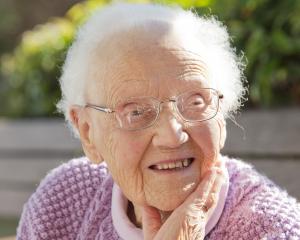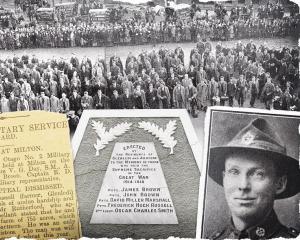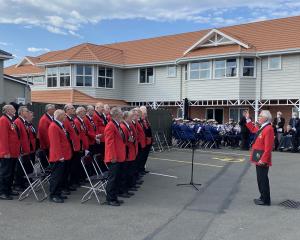
As great escapes go, the breakout from Aquafredda work camp in Italy in 1943 does not really qualify - the guards had wandered off in the wake of Italy's surrender, so the prisoners of war they had formerly been watching high-tailed it before the Germans arrived.

Dunedin researcher Warwick Brunton is one of a handful of locals with connections to the Aquafredda escape who hope drum up support for a tribute or memorial to the escape to be built in Italy, both to the men who escaped and the Italian civilians who risked their lives to help them.
Mr Brunton's father, Bud Brunton, was captured at Ruweisat Ridge, in Egypt, in July 1942, and was eventually transferred to Italian custody.
''He eventually ended up at this small camp in the mountains called Aquafredda, which was a sub-camp of a larger camp at Sulmona,'' Mr Brunton said.
''When the Italians surrendered all but the sick and wounded decided to take to the hills in groups of about 10.
''The idea was that they were well placed to reach the Allied troops advancing up the peninsula - they could hear the artillery fire as a rumble in the distance.''

''He and his mate from Christchurch were given shelter in a little village called Caramanico, and the family which looked after them were very poor but quite prepared to share what they had.''
Bud Brunton was hidden in a loft, but had to make a rapid getaway down a rope made of knotted sheets after German troops came looking for him.
He was then hidden in a nearby cave, where he endured for a few miserable-sounding months.
''Dad wasn't well at the time, with recurrent malaria ... they were on the run, but needed medical assistance.
''As Dad's condition worsened he eventually needed help, went to visit a doctor, knocked on the door and out came a German officer, so that was the end of that.''

Dunedin genealogist and researcher Maureen West has extensively researched the escape, and compiled a list of Otago men believed to have been part of it.
Suggestions for a memorial have included a plaque, a grove of New Zealand native trees at the Freedom Trail, and the development of enduring links based on the theme of peace-making.
''If we don't do it now and soon, it will be too late.''
Mr Brunton has been in communication with the Caramanico Terme Mayor Simone Angelucci, who had expressed enthusiasm for renewing the Italian-New Zealand connection.
''They have been quite amazed to discover the extent of involvement of locals in supporting the POWs.
''They have built a Freedom Trail which links up a number of these caves on the opposite side of the ravine to where Dad was.''
Escapees
Otago men involved in the Aquafredda camp escape
*Pte Albert Edward Bartlett, *Pte James Muir Cameron Begg; *Pte Jack Bryan; *Pte Cecil Raymond Carolin; *Pte George Harry Davie; *Pte John Russell Gall; *Pte Norman Vivian Gillan; *Tpr Robert Ewan Hay; Pte James William Lawrenson; *Pte John French Manley; *Dvr Thomas David McKay; *Pte John McKnight; *Tpr Thomas Arthur Milburn; *Pte Arthur Edward Morrison; *Pte Jack Parsons Murdoch; *Pte Gordon Ross Polson; *Lcpl James Arthur Gordon Reid (aka Arthur Gordon James Jones); Gnr John Morrison Ringland; *Pte John Philip Kitchener Roughan; Pte Charles Clifford Smith; Pte Thomas Clifford Stratton; *Pte Walter Francis Williams.
*denotes those who made it to Allied lines












